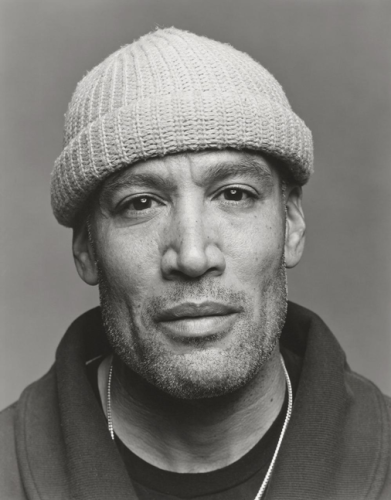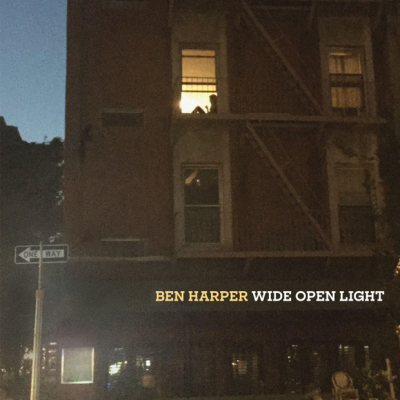Ben Harper
Click  on photo to download high resolution version
on photo to download high resolution version
All rights reserved. Photos are for editorial use only.
Photos
Videos
Latest ReleaseView All
WIDE OPEN LIGHT
Release date: 6.2.23
Label: Chrysalis Records
Press Releases View All
Ben Harper & The Innocent Criminals Announce Summer Tour
Read MoreBen Harper Releases New Album WIDE OPEN LIGHT via Chrysalis Records
Read MoreBen Harper Shares New Single “Love After Love”
Read MoreBiography View
“It was like I was moving forward and venturing into places I had never been before. Taking everything I've learned from every other record and kind of setting fire to it all and starting over,” Ben Harper says of his new album Bloodline Maintenance. “And I knew the sounds I was hearing in my head were so unorthodox that I had to do most of it myself.”
The result is a fearless and immensely soulful work largely inspired by the loss of a longtime friend and the lingering influence of a mercurial and charismatic father. The record opens with “Below Sea Level,” a haunting a cappella doo-wop chorus built on a layered harmony of Harper’s voice. The lyrics, “I fear that everything is happening in this world, some days it brings me to my knees. You said I dropped in on the wrong planet, as if it were up to me,” reference both the unsettling nature of the times and a father’s intellect and irreverent wit. “My dad was like Cornell West, Richard Pryor and the corner drunk, but with perfect penmanship,” Harper says with a laugh.
With the death of longtime bassist and friend Juan Nelson, Harper initially composed much of the album on bass. “It made me feel closer to him and eventually led to writing songs.” When it came time to record, he made the unconventional decision to employ an acoustic upright bass. “Growing up in a music store the upright always intrigued me,” he explains. “It’s the most underused instrument in pop music. But instead of slapping I tried to emulate James Jamerson of the Funk Brothers if he had put down his Fender and picked up an upright. It was a challenge to reacquaint myself with the instrument but I think it served the songs in unique way and gave them a distinctive DNA.”
Along with guitar and bass, Harper also played the drums including an eclectic assortment of percussions and a plastic toy snare. The deliberately open spaces and accented beats influenced in large part by the exploratory rhythms of the hip-hop he has loved since his teens. The result is less a direct influence than the applying of hip-hop’s inventiveness to longstanding paradigms of soul, blues and jazz, spinning it all forward into a reconfiguration of a new black Americana. “If this is my Mule Variations, then hallelujah.” Harper says, referencing the groundbreaking Tom Waits record.
After the a deliberately contemplative intro, the album explodes into the blistering funk of “We Need to Talk About It,” the lyrics defiantly addressing the wounds of slavery, Harper’s voice in a sharp dialogue with gospel backup singers, the narrative eventually punctuated by the devastating question, “How does a ghost forgive?” As Harper explains, “I believe strongly that music has this great capacity for communication like a sonic newsprint. And I’ve always believed that the music I write has a place in that choir.”
Harper’s protest singer roots are deep and generational. His grandfather was persecuted for being a communist. Harassed by local authorities the family migrated west and became fixtures of a thriving Southern California folk scene. Harper learned guitar at a family music store frequented by artists such as Brownie McGhee, Sonny Terry, Doc Watson, John Fahey, Leonard Cohen, Jackson Browne, and others. By the time he was 21, he was touring with international music legend Taj Mahal. In the ensuing years he would record sixteen albums, amass a worldwide following, win three Grammy Awards and produce works for Mavis Staples, Rickie Lee Jones, The Blind Boys of Alabama, Natalie Maines, and others. Harper has also recorded with a diverse roster of artists ranging from John Lee Hooker, Solomon Burke and Jack Johnson to Ringo Starr, Keith Richards and Harry Styles.
Never content to rest on his creative laurels, Harper has continued to explore new sonic territory. “It’s a lot like skateboarding,” he says, referencing his other obsession. “If you want to move forward, you can’t be afraid to fall in public.” The record proceeding Bloodline Maintenance, the masterful instrumental Winter Is for Lovers, featured only lap steel guitar, no additional musicians and no vocals. For the new album he has retained his signature lap steel, but supercharged it through a coveted and powerful Dumble amplifier creating a far more unruly tone. “That sound is out for blood,” he says. “It conveys every ounce of emotion. If you're not hearing what I'm saying with my words, you'll hear it in my instrument. It’s a wild sound that definitely pulls in some Hendrix ghosts.”
The most noticeable stylistic departure is “Problem Child,” which moves from simmering primitive blues into something resembling a kind of punk jazz, complete with an improvisational saxophone solo. The lyrics, “In the streets with ill-intention, running from the law, filed an extension, for my fundamental flaw, all along they've been keeping a file, for the problem child” offer an unflinching self-examination of the veteran artist. “The song is about me at various times in my life, from 30 years ago to 30 days ago,” he says. “But then it also circles back to the ongoing conversation with my pops. What has always fascinated me about songs is their way to speak to more than one emotion simultaneously, because you’ve only got a few minutes to make it count.”
Bloodline Maintenance is both a political and personally revealing work. It is soul music, but never a stylistic tribute to some bygone era. The sound and words are essential and undeniably timely. Tracks like the propulsive “Where Did We Go Wrong” and the guitar-fueled “It Ain’t No Use” are infectious bursts of modernized R&B, with Harper’s voice and musicality at the peak of their considerable powers. But taken as a whole, titles like “We Need to Talk About It,” “Where Did We Go Wrong,” and “Ain’t No Use” offer a more profound social commentary. It is a narrative that culminates with the heart-rending track “Maybe I Can’t,” with Harper delivering the refrain, “Some memories I plant in the garden, others scattered never to grow, maybe I can't let go.” It is a powerful musical reckoning. Harper acknowledges that much of the exploration on the record was fueled by an awareness of time. “It’s this notion of mortality and the people we have lost. The way I hoped it would all turn out and the realization that, as beautiful as it all can be, perhaps none of it matters beyond these moments.”
Online
- Official Site
- .(JavaScript must be enabled to view this email address)


_Michael_Halsband__2022._All_RIghts_Reserved_3513_05_500_396_s.jpg)



_Michael_Halsband__2022._All_RIghts_Reserved_3513_05_164_130_s.jpg)


![Ben Harper - Yard Sale (Lyric Video) [feat. Jack Johnson]](https://i.ytimg.com/vi/Q_3cR2Q8rzc/mqdefault.jpg)

